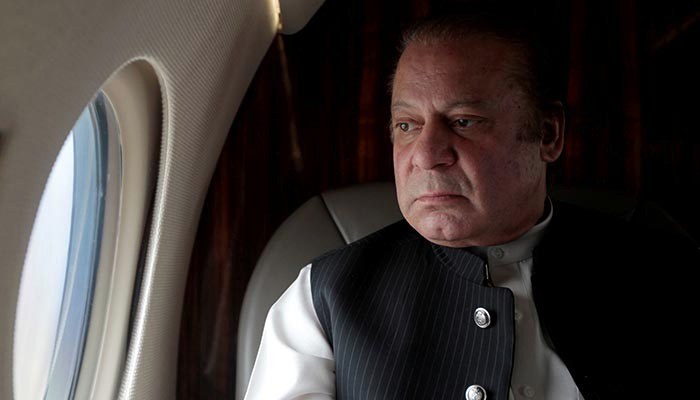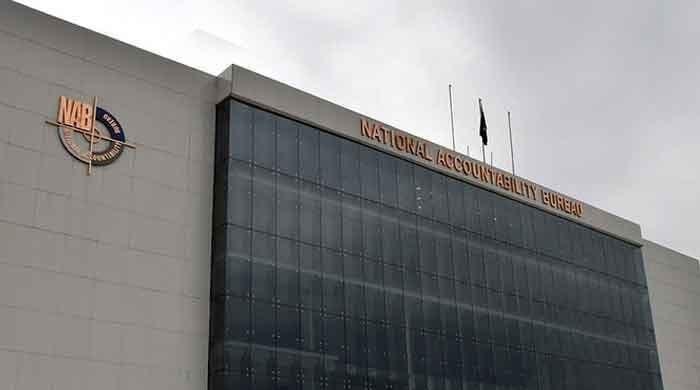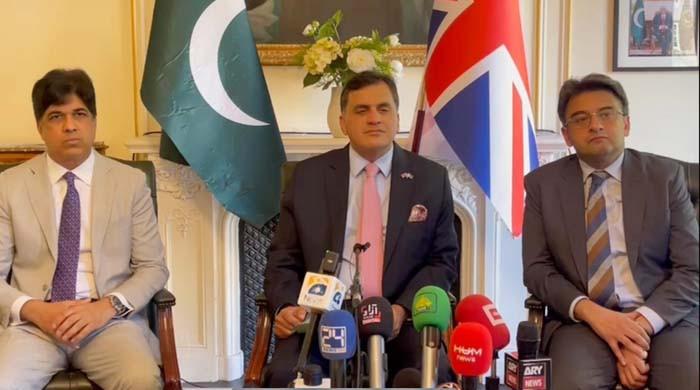Nawaz’s disqualification: What legal experts say
Disqualification can't be for life till a legal provision to do so is present: senior SC lawyer Abid Hassan Minto
July 29, 2017

Following the much-awaited Panama case verdict announced by the Supreme Court early Friday, legal analysts expressed their opinions on the decision to disqualify Nawaz Sharif as the prime minister.
Speaking to Geo News, barrister Salahuddin Ahmed said the SC’s verdict based on Sharif not declaring his United Arab Emirates (UAE) company FZE Capital’s income in his nomination papers was puzzling, as this was not a legal basis to dismiss the premier.
“Basic accounting principles dictate that company’s use the accrual system whereby all income – whether received or not – is declared,” Ahmed explained. “However, individuals use the cash-basis system, which allows them to not declare any un-received income.”
Based on accounting principles alone, the SC’s judgment holds no legal ground for dismissal, Ahmed said.
He further added that all misdeclarations can’t be grounds for disqualification from holding public office.
Adding to the analysis on the Supreme Court’s verdict based on article 62 (1)(f), constitutional expert and senior lawyer of the Supreme Court of Pakistan Abid Hassan Minto expressed his disappointment on the decision.
“It is disheartening to see how things are being manipulated,” Minto said. “Since judges of the country’s highest court are on the deciding end, it leaves no room for contesting or appealing for the defendant.”
In response to a question if Sharif could challenge the lifetime ban on holding public office, the seasoned lawyer said that the more pertinent question was where would the former premier challenge the decision of the country’s highest court.
“The constitution says an individual can’t be disqualified for life till a legal provision to do so is present,” Minto stressed.
The lawyer added that contradictions in the judgment are ‘upsetting legal minds.’
Weighing in on the SC’s decision, barrister Masroor Shah said the ‘Supreme Court has picked a very dangerous sword in its hands i.e. article 62.’
He added that fair trials throughout the world give the defendant right to one appeal including Pakistan’s constitution as per article 10-A, however, the SC has opened a ‘Pandora’s box by disqualifying the prime minister on a ground as vague as article 62.’
Discussing articles 62 and 63 – that became the basis for Nawaz Sharif’s disqualification in the Panama case decision -- human rights lawyer and social activist Asma Jehangir highlighted the contradiction in the said parts of the constitution while speaking on Geo News’ program Naya Pakistan with Talat Hussain.
“If you are convicted on moral grounds, the disqualification remains effective for a few years, but when 62 (1)(f) becomes the basis of disqualification i.e. you are not Sadiq and Ameen, then the disqualification is for life and the individual can only be a political party’s leader and not member as per the constitution,” she said.
In response to a question if the Sharif family would be afforded a fair trial while the SC will be monitoring it, Jehangir said it was clearly not possible as the appeal would be filed with the same court monitoring the trial.
Former Supreme Court Bar Association (SCBA) president Rasheed A. Rizvi too said he believed it is against the independence of judiciary that a trial is ‘watched by an SC judge.’ He also said independence of judiciary is not only limited to the Supreme Court but also includes independence of lower courts of the country.
Talking on Geo News' program Aaj Shahzeb Khanzada Kay Sath, another former SCBA President Kamran Murtaza opined that the decision of making an SC judge supervise a case filed with the National Accountability Bureau (NAB) is 'taking away the legal right of a the NAB chairman.'
He added that supervising the case in an accountability court and fixing a time frame for the case seemed highly unreasonable conditions.
“It seems like this case was handpicked,’ he said. ‘This would draw criticism, wouldn’t it,’ Murtaza said.
Former SCBA Chairman Saeed Ali Zafar said while he agrees with the decision to supervise the reference filed with NAB, the judgment gives off the impression that the SC will supervise the accountability court, which would hinder a fair trial.
“SC should limit the supervision to filing the reference and let the accountability court do its job,” Zafar said.
Weighing in on the SC's decision, lawyer Babar Sattar said, “When there’s such a definitive and damning judgment by five [SC] judges, a time frame to complete a case, an implementation bench for the case, and the prime minister involved, which accountability judge would be able to work on the case with an open frame of mind,” adding that it was not humanly possible to not be influenced by the proceedings, media trial, and SC observations.











